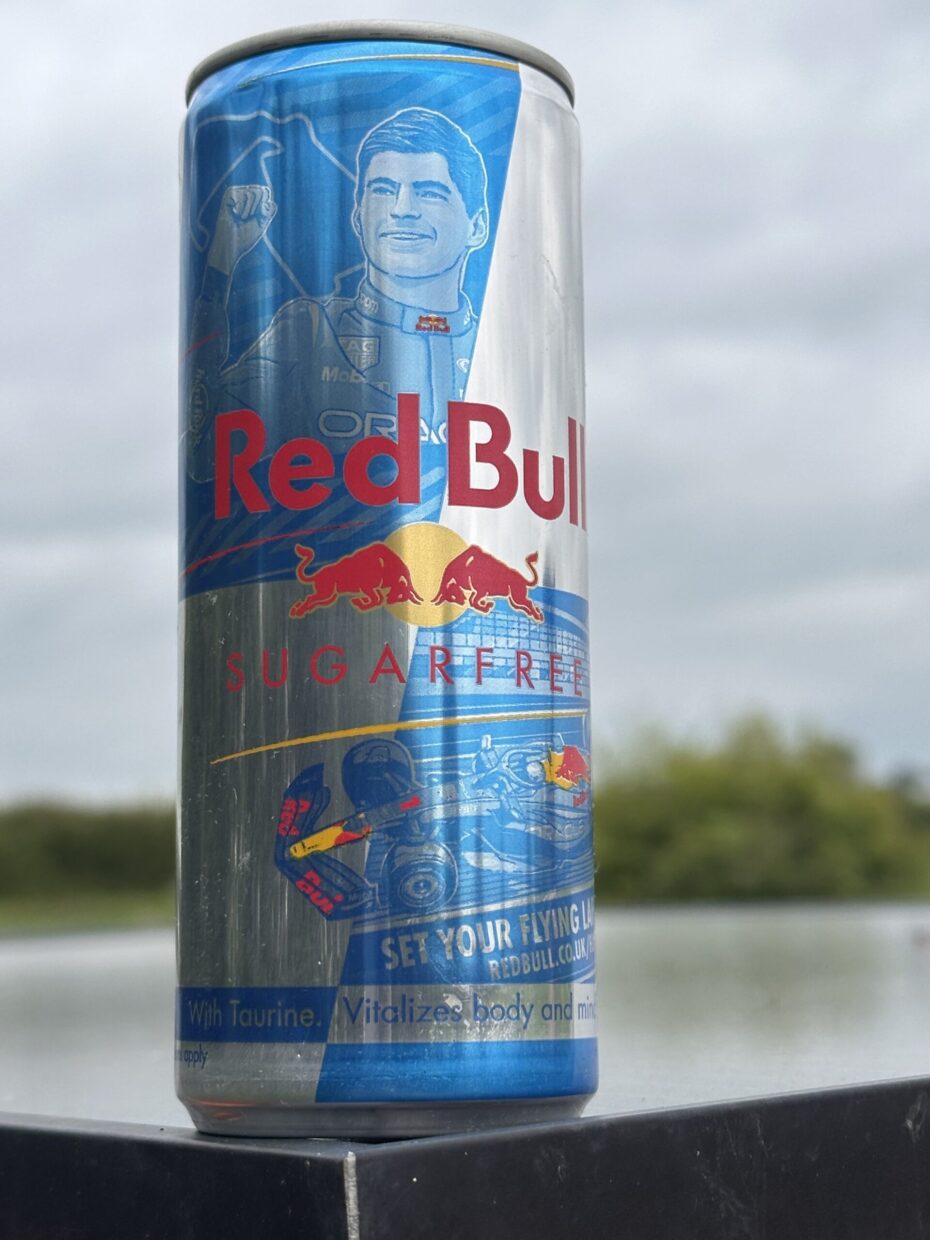Introduction
Hey there, I’m Siobhain, a passionate vegan with a critical eye for what I consume. Today, let’s dive into the world of Red Bull Sugar Free. While I typically stick to whole foods as a vegan, there are times when I need a pick-me-up and turn to energy drinks. Red Bull Sugar Free is one of the most popular choices out there, so I want to explore whether it’s vegan, healthy, and sustainable before deciding if it’s a good fit for me.
Personally, I find Red Bull Sugar Free to be the tastiest among its competitors. It’s hard to put into words – maybe you can help describe the taste in the comments. Red Bull holds a significant position in the sugar-free energy drinks market, so it seems important to take a deep dive into the product. Source: https://www.redbull.com/ie-en/energydrink/is-red-bull-a-sustainable-company
Is Red Bull Sugar Free Vegan?
To be considered vegan, a product must not contain any animal-derived ingredients. In the case of Red Bull, they state that none of the ingredients in Red Bull Sugar Free are derived from animal products, making it technically vegan. You can find more information on their website: https://www.redbull.com/gb-en/energydrink/is-suitable-for-vegetarians
However, I recently discovered that in 2004, Red Bull founded Wings for Life, a non-profit research foundation with the goal of curing spinal cord injuries. While this is a noble cause, the foundation funds research that involves animal testing, which raises ethical concerns for me. This connection to animal testing gives me pause in supporting their products. https://www.wingsforlife.com/uk/latest/animal-research-their-need-and-guidelines
Health and Nutritional Value
Let us look at the ingredients.
- Water: Water is essential for hydration and overall health. It has no negative health effects unless consumed in excessive amounts.
- Acid (Citric Acid): Citric acid is a natural acid found in citrus fruits. In small amounts, it is safe to consume. However, excessive consumption may erode tooth enamel over time.
- Carbon Dioxide: Carbon dioxide is a colourless, odourless gas. In beverages, it provides carbonation and fizziness. It is generally safe for consumption.
- Taurine (0.4%): Taurine is an amino acid that is naturally found in the body. In moderate amounts, it is considered safe. It is commonly found in energy drinks.
- Acidity Regulators (Sodium Carbonates, Magnesium Carbonates): These are used to control the acidity or alkalinity of a product. They are generally regarded as safe food additives.
- Caffeine (0.03%): Caffeine is a stimulant that can improve focus and alertness. In moderation, it is safe for most people. However, excessive caffeine consumption can lead to negative side effects.
- Sweeteners (Sucralose, Acesulfame K): Sucralose and Acesulfame K are artificial sweeteners. They are low in calories and can be used as sugar substitutes. While they are considered safe by regulatory agencies, some people may prefer to limit their intake of artificial sweeteners.
- Vitamins (Niacin, Pantothenic Acid, B6, B12): These are essential vitamins that play various roles in the body. They are important for overall health and well-being.
- Flavourings: Flavourings are added to enhance the taste of the product. They are generally safe for consumption.
- Thickener (Xanthan Gum): Xanthan gum is a common food additive used as a thickening agent. It is considered safe for consumption.
- Colours (Plain Caramel, Riboflavins): These are used to give the product its color. While they are generally safe, some artificial colors may cause sensitivity or allergic reactions in some individuals.
Overall, most of the ingredients listed are considered safe for consumption in moderation. It’s always good to be mindful of your overall intake of certain components, especially caffeine and artificial sweeteners, if you have specific health concerns or sensitivities.
Looking at the nutritional value of red Bull Sugar Free. While some ingredients like vitamins (Niacin, Pantothenic Acid, B6, B12) can provide some nutritional value by contributing to your daily intake of essential nutrients, the overall nutritional value of the product may be limited.
The product contains water, which is essential for hydration, and some vitamins that are necessary for various bodily functions. However, other ingredients like sweeteners, flavourings, and acidity regulators do not contribute significant nutritional value.
Sustainability
Red Bull does not provide any information regarding the sustainability of their ingredients, but as far as their packaging and energy use they are a very sustainable company. The Red Bull sugar free can is aluminium and fully recyclable. Source https://www.redbull.com/ie-en/energydrink/is-red-bull-a-sustainable-company
Conclusion
While the ingredients in Red Bull Sugar Free are technically vegan, the fact that their charity funds research involving animal testing may give some consumers pause. When it comes to health, energy drinks in general are not considered healthy choices, and moderation is key. As for sustainability, the recyclability of the aluminium can used by Red Bull Sugar Free is a positive aspect
I’m eager to hear your thoughts on Red Bull Sugar Free. Do you consider it vegan? How do you feel about Red Bull’s charity funding animal testing? Share your opinions on the blog and let me know if you have any disagreements or additional insights.



Before you go…
If you’re vegan or just looking for cruelty-free supplements, chocolate, or meal kits, here are a few brands worth checking out.
Dr. Vegan make fully plant-based supplements with clear ingredients. Use code DR15 to get 15% off.
The links above are affiliate links. If you click through and buy something, I may earn a small commission at no extra cost to you.

